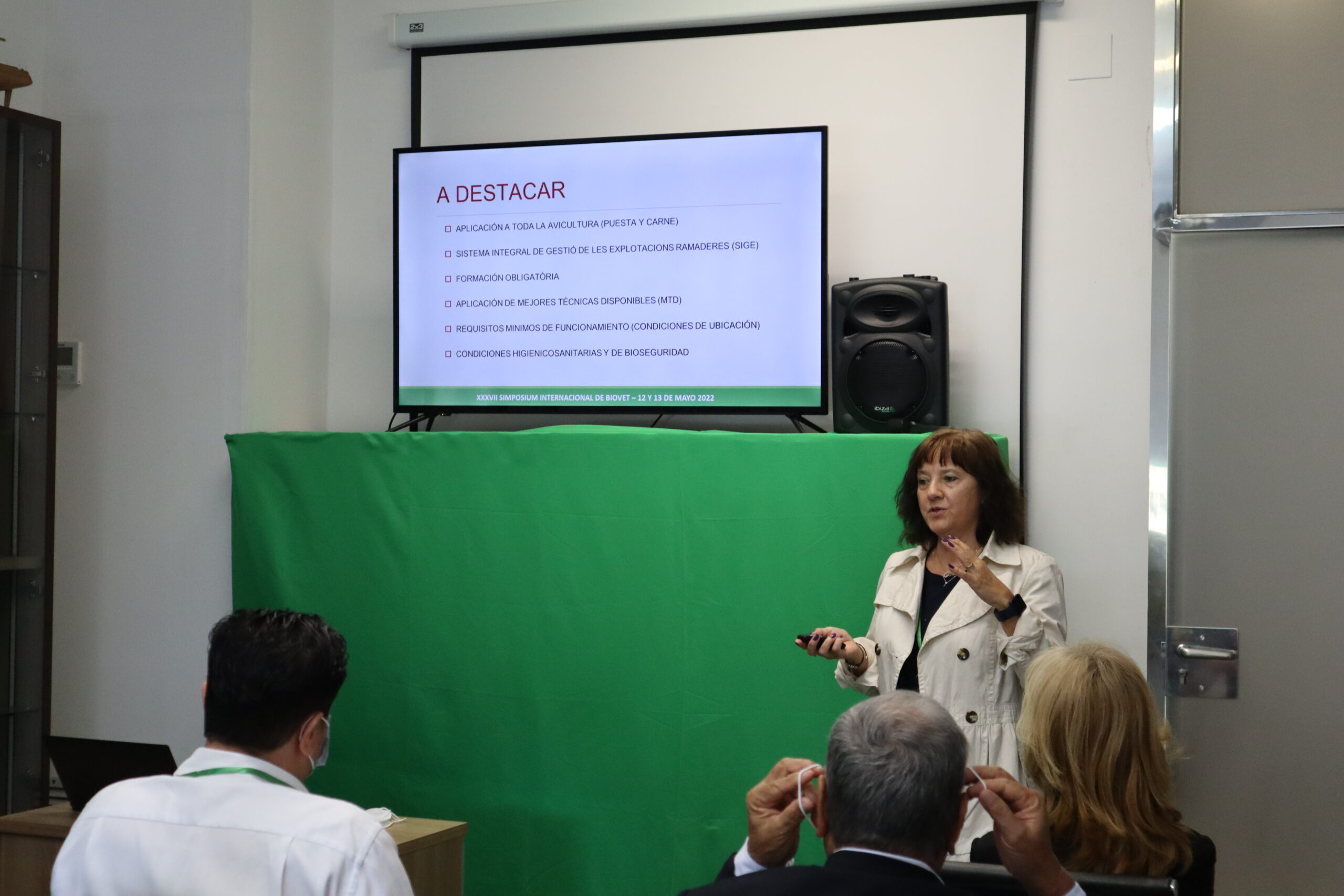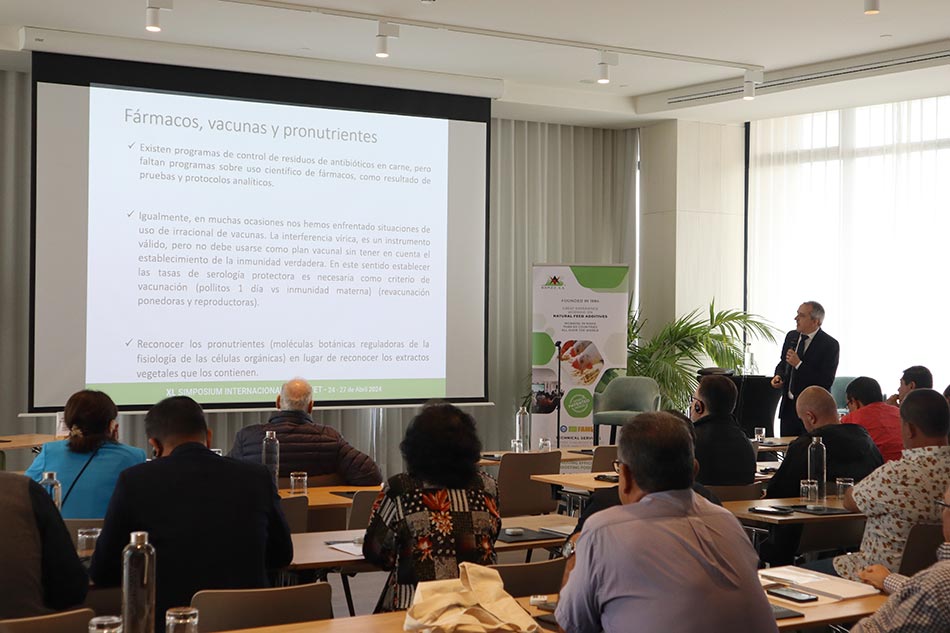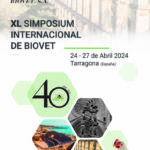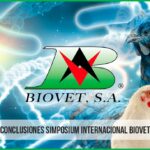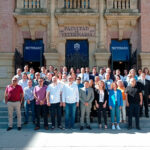Pathologies and new regulations on the last day of the XXXVII Biovet International Symposium
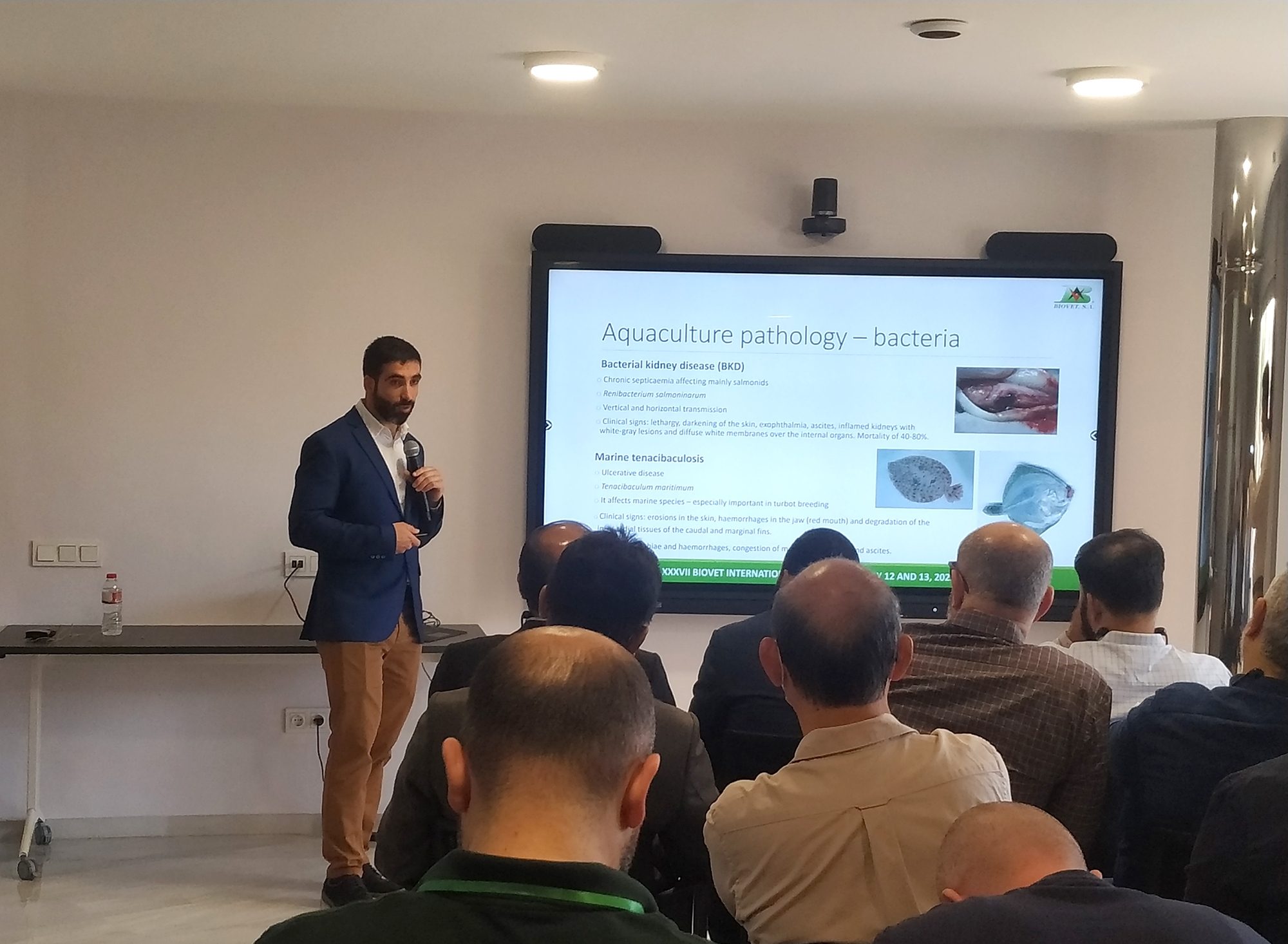
The second day of the XXXVII Biovet International Symposium presented the traditional conferences about most important pathologies in poultry, pigs and aquaculture sectors by Drs. Germán Bertsch, María Soriano and Ekaitz Maguregui, veterinarians of Biovet S.A. In the three presentations a summary of the most common pathologies found by the technical team of Biovet worldwide was presented, including diseases of infectious and nutritional origin, describing signs and lesions observed in different clinical cases in adult and young birds, and their differential diagnosis and proposing the most effective solutions for those diseases.
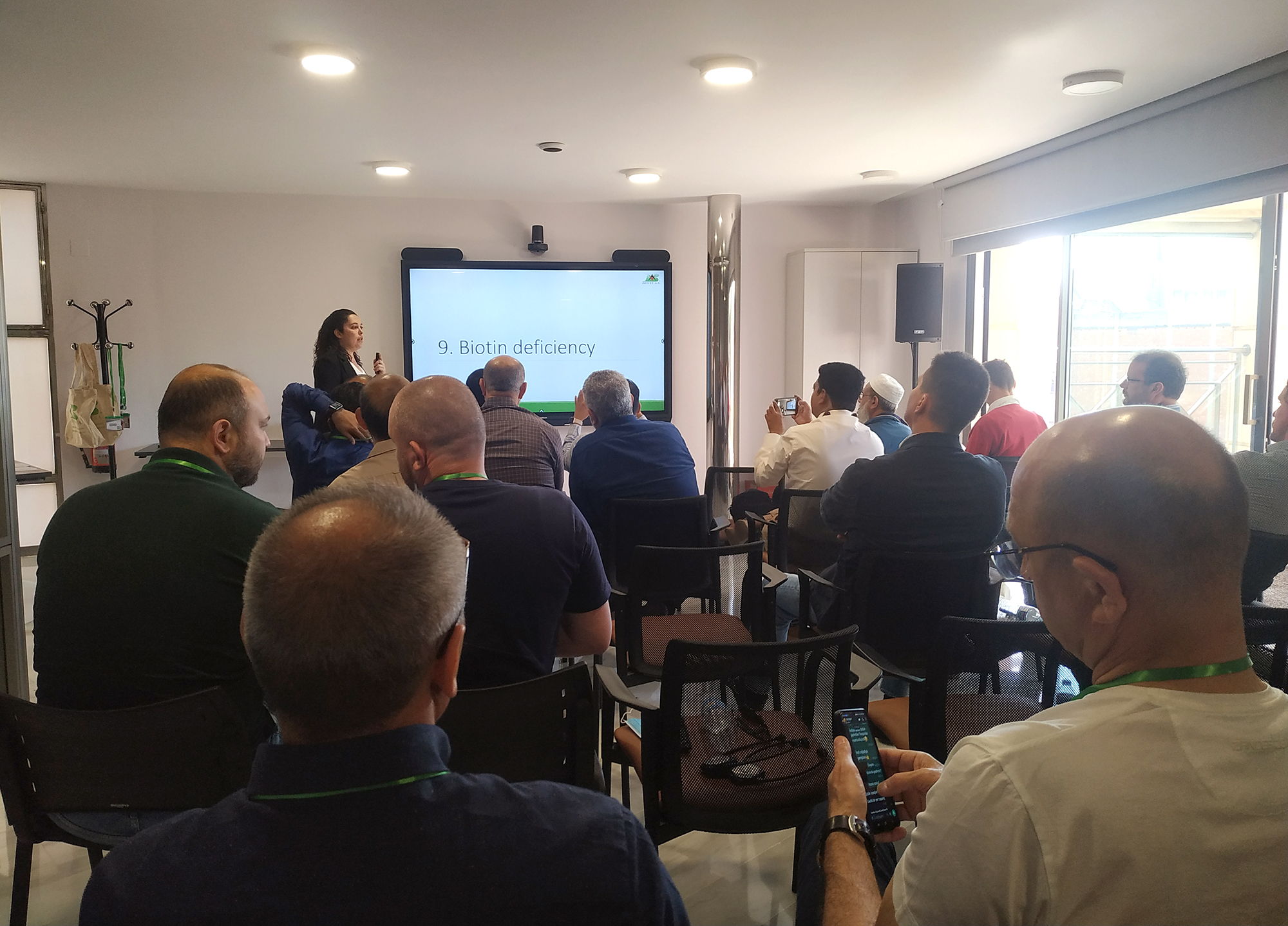
Dr. Enzo Rodriguez Lay complemented this session with a conference about Porcine Dermatitis and Nephropathy Syndrome. That was a summary of the current information available on the porcine dermatitis and nephropathy syndrome (PDNS), including signs and lesions, and evolution of the disease in pigs.
Developments in the European regulations
The conferences followed with the presentation of Dr. Belén Folgueras, Generalitat de Catalunya, who presented the conference ‘Developments in the European regulations’. This was an overview of feed manufacturing sector in Europe per species, role of the Catalonia region in Europe, as well as the evolution of the feed regulation in the EU regarding the use of antibiotics in feed and the use of animal protein in feed, as well as the current and future perspectives of the sector.
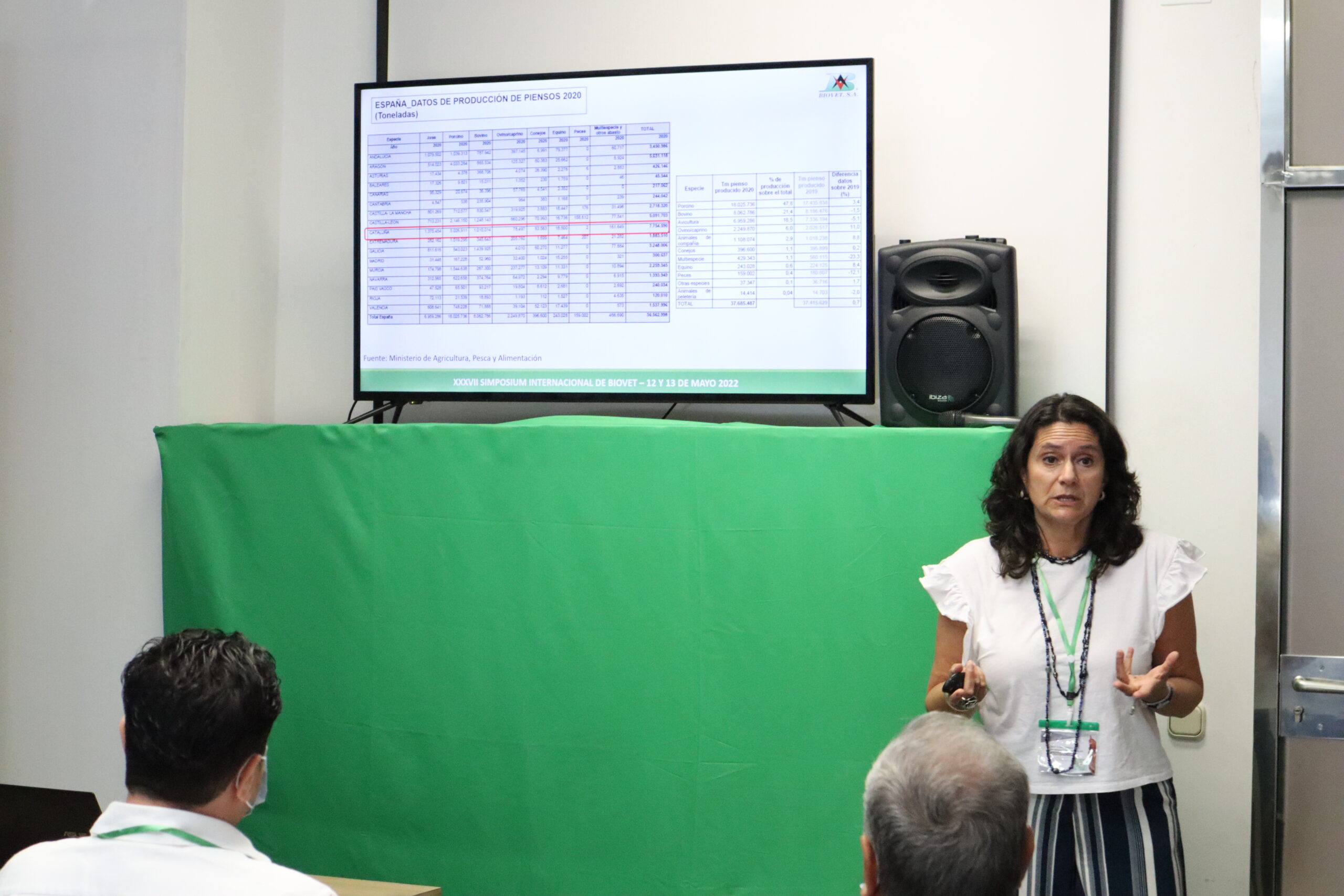
Microbiota and microminerals
Then, Dr. Roberto Minetti, Senasa Argentina, presented the conference about microbiota and microminerals in a conference that explained the definition of the functions of the microbiota in the organism (intestine, immune system and nervous system) and the effect of microminerals, such as copper, zinc, selenium and arsenic in the microbiota.

Ms. Elisabhet Pages, from the Biovet logistic department, made a summary of the results of the logistic department of Biovet, including types of shipments performed (maritime, air and land shipments), the areas of destination, the causes of the current increase in transportation costs, as well as the cost increase compared to 2021 and the days of delay between ETD and real loading date during 2022.
New regulation in poultry farms
Finally, Dr. Montse Alamos, Generalitat de Catalunya, exposed a conference about ‘New regulations in poultry farms’. In this talk, Dr. Alamos made a brief introduction to the new Royal Decree 637/2021 applicable to the poultry sector in Spain, which includes the preparation of documentation that makes up the comprehensive farm management system (SIGE) that includes different programs and records such as the training program; facility maintenance; biosafety; hygienic-sanitary program; cleaning and disinfection; animal welfare (with a risk assessment on the farms, and an action plan with the measures to be applied in the event of detection of incidents); environmental management plan. Another important issue included in the Royal Decree is the declaration, by poultry producers, of the Best Available Techniques installed in the farms to achieve the reduction of greenhouse gas emissions to the levels established by the regulations.
